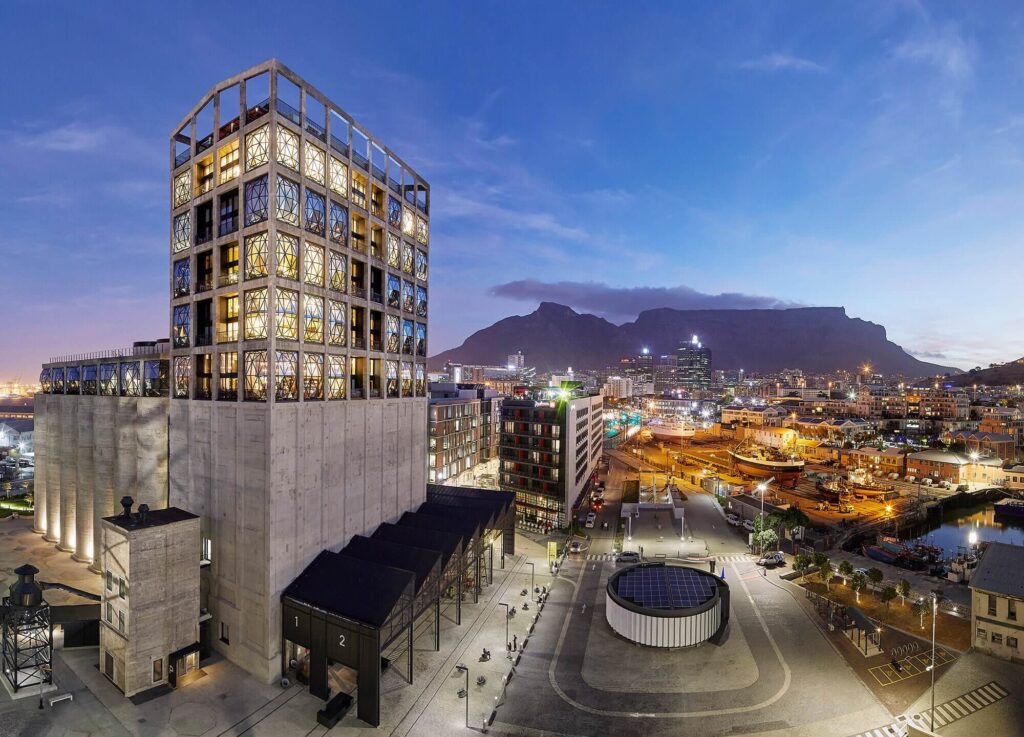Albany Museum
The Albany Museum, located in Grahamstown, Eastern Cape Province, was founded in 1855 and is South Africa’s second oldest museum. It is a provincial museum supported by the Department of Sport, Recreation, Arts, and Culture in the Eastern Cape. The Albany Museum is a Rhodes University research institute. The Natural Sciences Museum, the History Museum, the Observatory Museum, Fort Selwyn, the Old Provost military prison, Drostdy Arch, and the Old Priest’s House, which is leased to the National English Literary Museum, are all part of the Museum today.
Amathole Museum
The Amathole Museum, formerly known as the Kaffrarian Museum, is a natural and cultural history museum in King William’s Town, South Africa’s Eastern Cape province. The museum houses South Africa’s second largest collection of mammals, including the taxidermied body of Huberta, the hippopotamus.
Red Location Museum
The Red Location Museum is a museum in Port Elizabeth’s New Brighton township. The museum opened to the public on November 10, 2006, as a tribute to the anti-apartheid struggle. It is located in a shack settlement in one of Port Elizabeth’s oldest townships. The area once housed a Boer concentration camp, but the residents were relocated in 1900 when the site became one of the first few Black urban settlements.
South African Air Force Museum
The South African Air Force Museum houses exhibits and restores material related to the history of the South African Air Force. The museum is divided into three locations, AFB Swartkop outside Pretoria, AFB Ysterplaat in Cape Town and at the Port Elizabeth airport.
The Owl House Museum
The Owl House is a museum in the Eastern Cape town of Nieu-Bethesda. Helen Martins, the owner, transformed her home and the surrounding area into a visionary environment, elaborately decorated with ground glass and containing over 300 statues of owls, camels, peacocks, pyramids, and people. After her parents died, she inherited the house and began renovating it.
Apartheid Museum
The Apartheid Museum is a museum in Johannesburg, South Africa that depicts apartheid and South African history in the twentieth century. The museum, which is part of the Gold Reef City complex, first opened its doors in November 2001. The museum hosts events at least five times a year to commemorate the end of apartheid and the beginning of multiracial democracy for the people of South Africa.
Hector Pieterson Museum
The Hector Pieterson Museum is a large museum in Orlando West, Soweto, South Africa, two blocks from the location where Hector Pieterson was shot and killed on June 16, 1976. The museum is named after him and chronicles the events of the anti-Apartheid Soweto Uprising, in which over 170 protesting schoolchildren were killed. The museum displays films, newspapers, personal accounts, and photographs, the most well-known of which is the iconic photograph by Sam Nzima.
Johannesburg Art Gallery
The Johannesburg Art Gallery is a South African art gallery located in Joubert Park in the city center of Johannesburg. It is the continent’s largest gallery, with a collection larger than the Iziko South African National Gallery in Cape Town. Sir Edwin Lutyens designed the building, which was completed in 1915, with Robert Howden serving as supervising architect. It consists of 15 exhibition halls and sculpture gardens. It houses collections of 17th- and 18th-century Dutch paintings, 18th- and 19th-century British and European art, 19th-century South African works, a large contemporary collection of 20th-century local and international art, and a print cabinet containing works ranging from the 15th to the present.
Mandela House
The Nelson Mandela National Museum, also known as Mandela House, is the house where Nelson Mandela lived from 1946 to 1962 on Vilakazi Street in Orlando West, Soweto, South Africa. It is located at 8115 Vilakazi Street, on the corner of Ngakane Street, a short distance up the road from Tutu House, the home of Archbishop Emeritus Desmond Tutu. On September 1, 1997, Mandela gave the house to the Soweto Heritage Trust (of which he was the founder) to be used as a museum. In 1999, it was designated a National Heritage Site.
Zeitz Museum of Contemporary Art

Zeitz Museum of Contemporary Art Africa is a public non-profit museum in Cape Town, South Africa. Zeitz MOCAA opened on September 22, 2017 as the largest museum of contemporary art from Africa and its diaspora. The museum is located in the Silo District at the Victoria & Alfred Waterfront in Cape Town. The Zeitz museum has set out to promote innovative artists and designers in Africa who have not been recognised, globally, at the level they should have been. The museum signifies a political, economic, and cultural investment.

